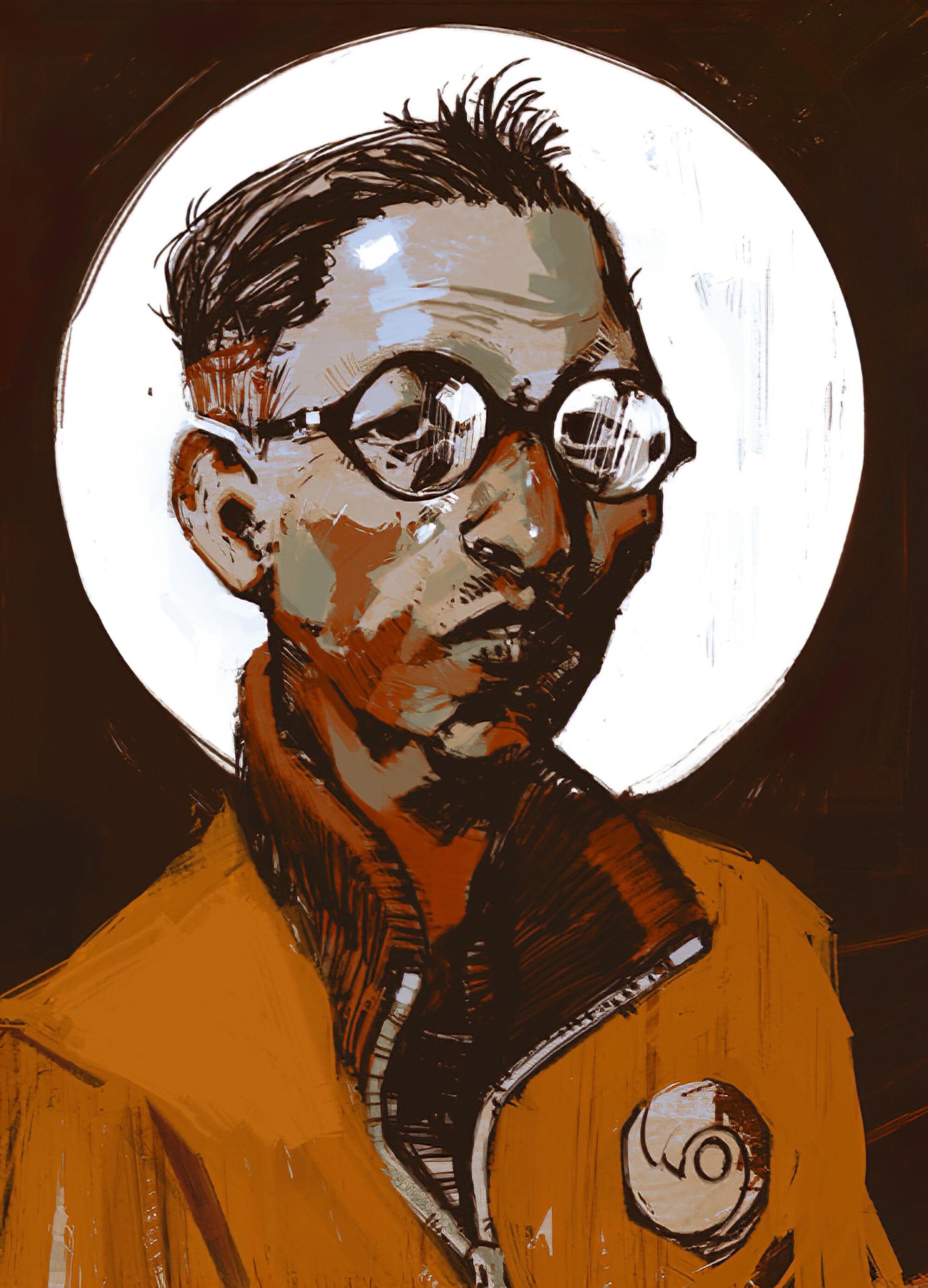I would call myself an atheist right now, but I feel something within me that is religious. I don’t know what I believe in but I want to study Christianity, but I have no idea where to start. I was born catholic but absolutely hated it, there was contradictions to its teachings at every turn, and there was constant cruelty and abuse. It felt like a place for rich middle class assholes to call themselves good people and justify their bigotry. For 5 years now, I’ve referred to myself as “atheist,” but have always been very interested in concepts of Christianity and Gnosticism, as well as religion in general. However, every community – both IRL and online – of Christians has been ridiculously toxic and hateful, and as a bi (also confused about that too) man I have never felt safe at any of these places, even “inclusive” ones. But christian themes and ideas have always made me feel a way that is indescribable, and I want to reevaluate my faith.
Now, from the little I know about Christianity, Gnosticism seems to, at least from my view, reconcile the the things that gave me so much grief about the bible. The idea of the bible’s YHVH as being an ignorant and malevolent being whose arrogance leads it to enslave humans and go against god’s true ideals, and bringing suffering to its imperfect world. But, how would I reconcile this as a communist? If the “goal” of Gnosticism is to is to escape to the perfect, immaterial world, what would be the point of making our current one better?
I want to do more research, and try to find the answer to all of this but I just don’t know where to start. I think I should read the bible, but I have so much shit going on, so I don’t know whether or not I can commit to that. Already I have 8 hours of school, an hour of studying Chinese, an hour of working out, and still spending time with my friends and family, I don’t know how I could commit more time to diligently and properly studying religion. Do any of you comrades have advice? Thank you for reading this, and I’m sorry it’s been a stream of consciousness-type post.
But, how would I reconcile this as a communist? If the “goal” of Gnosticism is to is to escape to the perfect, immaterial world, what would be the point of making our current one better?
A bit of a contradiction I suppose, but this question actually led me toward Communism. My own beliefs are a bit of an ecclectic mish-mash of all sorts of non-scientific stuff, that I’m not going to even try to explain, but part of it is the idea (like “an injustice anywhere is injustice everywhere”) that nobody is “done” (reincarnation of some sort is part of it too) until everybody is “done”.
So, the goal (or at least current project) becomes to advance society to the point where everyone has the opportunity, resources, safety, inclination, etc. to explore/develop this part of the human experience. Which to me, is only possible in some form of collaborative egalitarian society. The nice part is if this succeeds, even if all the non-material stuff is BS, you still end up with an excellent material existence
 .
.
As far as reading The Bible, (I wouldn’t bother, but if you do), don’t start at the beginning and just try to slog through. Most people recommend starting with the Gospels, beyond that I couldn’t give specifics. And if you do go for the slog, try to find an annotated version that you like, the extra context is worth it.
Maybe not yet, but for me I got a lot more out of learning about early Christianity and the evolution of ideas/organizations than I expected going in. Also, some Christian Mystics (I particularly like Meister Eckhart) are really interesting if you’re in the right mindset.
(Re-reading this I suspect not, but) hopefully there is something helpful in there

thank you, this is very helpful. can we chat on matrix? i have some questions about gnosticism and religion in general.
I do think that if you’re interested in learning more about Christianity, then you should probably start with the source material—even if you feel like you already know it from childhood, because you’ll see it differently now. I learned Ancient Greek in university and translated parts of the Christian Scriptures, and I really strongly recommend going with an NRSV translation. It’s not perfect, but I think it’s really excellent and isn’t denominationally-focused so you avoid the terribly biased translations. I highly recommend buying an NRSV Study Bible and reading the introductions to the books or any meaningful footnotes.
It’s unavoidable to read the Gospels for obvious reasons, reading the four won’t take you long as they are quite short, but it’s also good to read Acts to get the “follow-up” to what happened to the Apostles after Jesus died. But it’s very important not to forget Paul’s Epistles (Galatians, Romans, I&II Corinthians). Paul’s Epistles are actually the earliest Christian texts we have and, as such, are foundational and invaluable to Christianity. The earliest Gospel is Mark at about 60-70CE but Paul’s Letter to the Galatians is dated to about 50CE.
If the “goal” of Gnosticism is to is to escape to the perfect, immaterial world, what would be the point of making our current one better?
Personally, this is partly why I firmly reject Gnosticism. Besides Gnosticism also often finds itself used in anti-Semitic rhetoric (e.g., your assessment of the God of the Jewish Scriptures as “malevolent”) to argue that Christianity, and therefore Gentiles, are the superior religion and people (i.e., God of Love, Goodness, Chosen Elect, etc.). I don’t think the texts support this as I think the Jewish religion already sets the ground for Jesus to declare that God is Love. And we see literally thousands of years of historical, theological, and spiritual progression in Judaism so I think the self-criticism is already literally there in the Jewish Scriptures themselves, but I digress. Ultimately, both Judaism and Christianity are dynamic but also materialist in an undeniable way. Take the only definition of religion in both Scriptures found in James 1:27
Religion that is pure and undefiled before God, the Father, is this: to care for orphans and widows in their distress, and to keep oneself unstained by the world.
Can’t you easily imagine Communists running an orphanage or collectively supporting widows who lost their only means of financially surviving in the world? Just so you don’t think I’m playing political favorites, this is the same writer who then immediately goes on to condemn discrimination against the poor and the exploitation of workers. Doesn’t sound very capitalist or fascist to me. Might even be good for you to begin with the Epistle of James, which is very short. There are many instances in Christian Scriptures where there is a real and proto-political focus on improving the life of our communities here on earth that can’t just be easily dismissed as drug-addled fantasy, albeit not technically Marxist in its scientific materialism but is still impressively close or reconciliatory considering that it not only predates Marxism by thousands of years as well as all the philosophy that it was built upon but also capitalism. This same possibility doesn’t exist for Gnosticism, in fact most Leftists critique (rightly so) either fundamentalism or a form of popular Gnosticism that has overtaken mainstream Christianity. Even popular concepts of Hell aren’t Biblical but apocryphal, Gnostic, or modern (Dante, Milton). The spirituality of Gnosticism is idealism, which is to escape the physical for the higher plane of the mind and soul to find solitary connection with God; the religion of Christianity is material, in that we are to socially create love for our neighbors and care in our communities and that very love between us which connects us is itself God’s development and coming-into-presence on earth. Anyway, these are just my thoughts on Gnosticism and Christianity. I’m sorry for rambling but I hope it was somewhat helpful.
You’ll have to find your own way to interpret these texts and find a meaning to them that is valuable and speaks to you. Maybe you’ll find a way to make Gnosticism work for you. That being said, we also should always approach the Scriptures critically and understand that even the Church Fathers didn’t have modern fundamentalist opinions about the text: one can disagree with the Bible and it shouldn’t always be taken literally, many things like miracles or creation can be metaphorical. It was written over a long, long period of history by many, many different men and should be approached critically. Sad part is that most ‘Christians’ now have lost that part of the tradition. And I totally agree with you that, most Christian communities are hateful and toxic—which is to say, neither Christian nor Leftist—so it might be good to explore this meaning by yourself first and figure out what you make of it and then take it out into the world to practice. Communist praxis wouldn’t look much different, to be honest. I personally have an inextricably intertwined politico-religious perspective where I don’t think either side would be as rich or fulfilling without the other and I don’t see any irreconcilable contradictions between my understanding of Christianity as such and Communism. A couple of books I’d recommend on a Leftist analysis of Christianity: Jacob Taubes’ The Political Theology of Paul and Nikolai Berdyaev’s The Divine and the Human. Badiou’s Saint Paul is good too.
Wish you luck on your path, comrade, and I’m always happy to talk if you’d like or answer any questions if I can.
thank you.
I’ve never cover-to-cover read through the thing, but sometimes I’ll pull up a few passages if they’re referenced elsewhere. There are websites that let you pull up multiple translations and compare them side by side (usually go with Catholic, King James, and New International Version < and now that i’m thinking on it, Orthodox Christianity is a complete blindspot in my understanding… practically non of my history classes have ever touched it, beyond some vague allusions to ‘leavened bread’ >). It’s interesting to see how the stories get changed to fit the context they’ve been translated for. That’s admittedly a less spiritual approach; more historical. But I think the historical approach really helps. Spirituality, as a cultural and institutional thing, is just as much molded by the material context of history as anything else.
You might enjoy the story Small Gods by Terry Pratchett. It deals with a lot of cultural themes of growing up in Christianity, although remixed and fictionalized to fit a high-fantasy Tolken-like setting. If you have a lot going on, it’s certainly less of a commitment than full on Biblical study.




